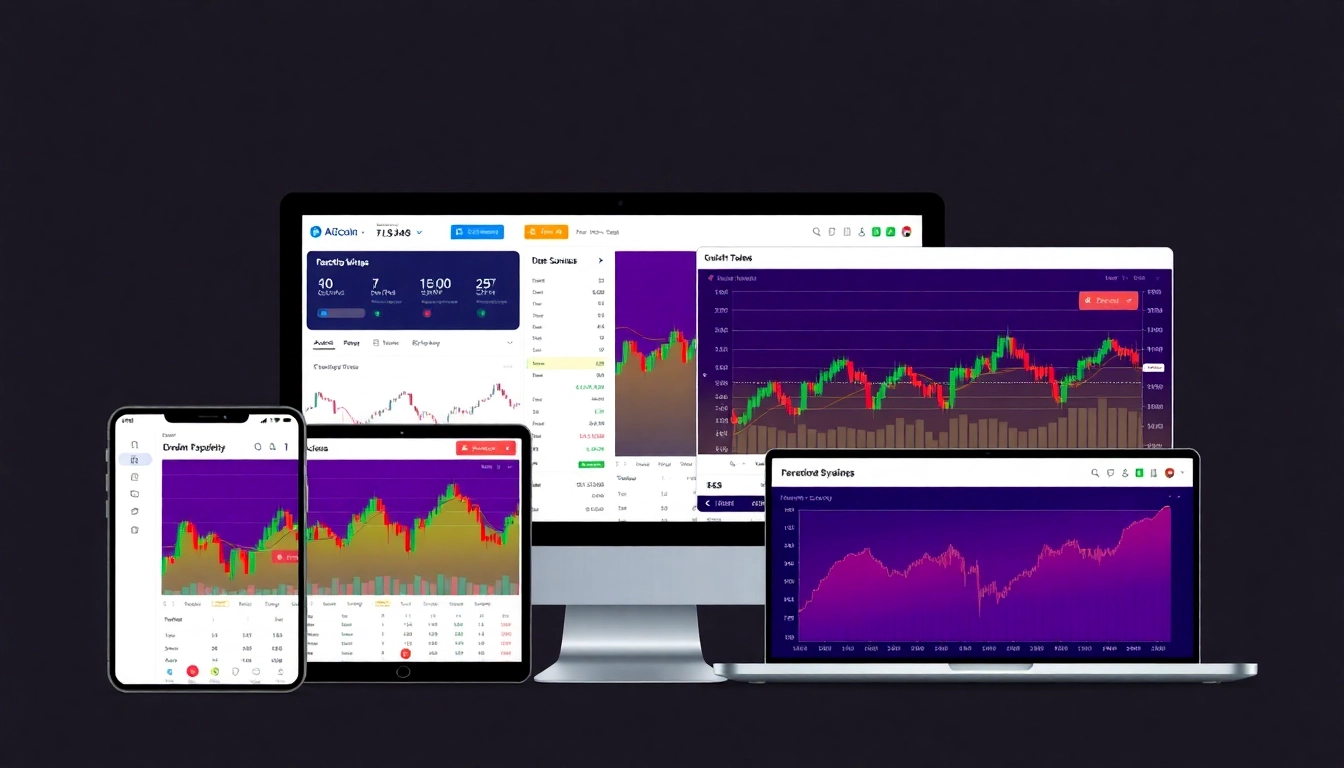Comprehensive Guide to Stocks and Shares Investing in the UK: Strategies, Insights, and Practical Tips
Investing in stocks and shares remains one of the most effective ways to build wealth over the long term for UK investors. As global markets fluctuate amidst geopolitical shifts, monetary policy changes, and economic uncertainties, understanding how to navigate the UK stock markets with confidence is crucial. This guide aims to provide an in-depth exploration of essential concepts, strategic development, advanced tactics, regulatory considerations, and portfolio management tailored specifically for the UK context. Whether you’re a novice investor or seeking to refine your existing approach, this comprehensive resource empowers you to maximize gains and mitigate risks effectively. For a detailed starting point, explore our Stocks and Shares Investing Guide UK to access vital resources, tools, and expert insights.
Understanding the Basics of Stocks and Shares Investing in the UK
Key Investment Concepts and Terminology
Before venturing into the dynamic UK stock markets, mastering foundational concepts and terminology is essential. Stocks, also known as shares or equities, represent ownership in a company. Investors buy stocks expecting the company’s growth will increase their share value or generate dividends. The primary types of stocks include common stocks, which grant voting rights and potential dividends, and preferred stocks, which typically prioritize dividend payments.
Market capitalization (market cap) reflects a company’s total value and categorizes stocks as large-cap, mid-cap, or small-cap, influencing risk and growth potential. Stock exchanges like the London Stock Exchange (LSE), AIM, and FTSE 100 are pivotal platforms where shares are traded, each with distinct listings and investor profiles. Other key concepts include dividend yield, P/E ratio (price-to-earnings), beta (volatility measure), and liquidity, all critical for assessing investment quality and risk.
Overview of UK Stock Markets and Exchanges
The UK boasts a rich tapestry of stock exchanges, with the London Stock Exchange (LSE) being the flagship, hosting over 2,000 domestic and international companies. The FTSE 100 index is a benchmark for large-cap UK stocks, offering a snapshot of the healthiest and most liquid companies. Additionally, the FTSE 250 and FTSE SmallCap indices cater to mid and small-cap segments, respectively, providing investors with diversified options at various risk levels.
Above these, the Alternative Investment Market (AIM) serves growth companies and startups, presenting higher risk but potentially higher rewards. The UK’s regulatory framework, maintained by the Financial Conduct Authority (FCA), ensures transparency, investor protection, and fair trading practices, fostering investor confidence across these markets.
Why Investing in Stocks and Shares Benefits UK Investors
Investing in stocks and shares offers numerous advantages, especially for UK investors. Historically, equities have provided robust long-term returns, outperforming other asset classes like bonds and cash. Additionally, the UK market’s liquidity allows for flexible entry and exit strategies, essential during volatile periods. Tax-efficient investment accounts such as ISAs (Individual Savings Accounts) and SIPPs (Self-Invested Personal Pensions) further enhance the appeal by mitigating tax liabilities.
Moreover, investing in local companies aligns with the UK economy’s growth prospects, providing a sense of connection and potential insider knowledge. Diversification within the UK market can also hedge foreign exchange risks and geopolitical uncertainties, making stocks and shares an integral part of a balanced investment portfolio.
Developing a Strong Investment Strategy Within the Stocks and Shares Investing Guide UK
Crafting a Diversified Portfolio Tailored to UK Market Trends
A well-constructed, diversified portfolio is fundamental to navigating market volatility and optimizing returns. In the UK context, this entails spreading investments across various sectors such as financials, healthcare, technology, consumer goods, and energy, aligning with current economic trends. For instance, amid the acceleration of green energy initiatives, allocation toward renewable energy companies in the UK is increasingly relevant.
Utilizing thematic investing—targeting themes like technological innovation, infrastructure development, or sustainable growth—can tap into macroeconomic shifts. Including a mix of large-cap, mid-cap, and small-cap stocks enables balanced exposure to stability and growth opportunities. Consideration of geographical diversification within UK equities also mitigates sector-specific risks.
Tools such as sector ETFs (Exchange-Traded Funds) and index funds simplify diversification, allowing passive exposure to diversified portfolios with lower costs.
Risk Management Techniques Specific to UK Investors
Effective risk management is vital for safeguarding investments and ensuring consistent growth. UK investors should adopt techniques such as setting stop-loss orders to limit downside risk, and employing dollar-cost averaging to smooth out entry points during volatile periods. Sector and stock-specific risks can be mitigated through diversification and ongoing research.
Understanding macroeconomic factors like Brexit negotiations, economic policy shifts, and currency fluctuations (GBP versus other currencies) influences risk assessment. Hedging strategies—using options or currency hedged funds—offer additional layers of protection against adverse movements.
Regular portfolio reviews, aligned with market conditions and economic forecasts, help maintain optimal risk-adjusted returns.
Choosing the Right Stocks and Shares Platforms in the UK
Selecting a reliable and cost-effective trading platform influences the overall investment experience. UK investors should prioritize platforms offering competitive fees, user-friendly interfaces, extensive research tools, and strong regulatory oversight by the FCA. Top platforms include Hargreaves Lansdown, Interactive Investor, AJ Bell, and eToro.
Considerations include commission structures, platform features (such as regular investing options), educational resources, customer support, and access to tax-efficient accounts like ISAs and SIPPs. Combining these factors ensures investor confidence and aligns trading capabilities with investment goals.
Advanced Tactics and Tools in the Stocks and Shares Investing Guide UK
Analyzing Stock Performance Using UK Market Data
Advanced analysis involves examining historical charts, technical indicators, and financial statements. Tools like TradingView, Stockopedia, and the London Stock Exchange’s Market Data provide real-time data for technical analysis, including moving averages, RSI, and MACD. Fundamental analysis of UK companies encompasses evaluating earnings reports, growth forecasts, dividend history, and sector health.
Case studies, like assessing the resilience of FTSE 100 giants during recent market shocks, highlight the importance of combining quantitative metrics with macroeconomic insights. Investors should also monitor earnings season updates and corporate news releases to inform timely buy or sell decisions.
Utilizing Tax-Efficient Investment Accounts in the UK
Tax-efficient accounts such as ISAs and SIPPs are essential components of a successful UK investment strategy. ISA allowances, currently set at £20,000 annually, allow tax-free gains and dividends, making them ideal for long-term wealth accumulation. SIPPs offer tax relief on contributions and flexibility in investment choices, including stocks, shares, and funds.
Understanding the specific rules—such as contribution limits, withdrawal restrictions, and tax implications of transferring assets—is vital. Strategic use of these accounts can significantly enhance after-tax returns and ensure compliance with UK tax laws.
Leveraging Financial News and Expert Insights for UK Investments
Staying abreast of the latest market developments and expert commentary enhances decision-making. Sources like the Financial Times, The Daily Telegraph, and industry reports from brokerage firms provide valuable insights into economic trends and sector prospects within the UK. Following central bank announcements, government policy changes, and Brexit developments can help anticipate market shifts.
Utilizing economic calendars, analyst reports, and market sentiment tools, investors can refine their strategies and identify emerging opportunities, ensuring their portfolios adapt proactively to the evolving UK economic landscape.
Regulations, Taxes, and Compliance for UK Investors
Understanding UK Investment Laws and Regulations
The UK’s financial regulatory environment aims to protect investors and ensure market integrity. The FCA oversees firms offering investment services, enforcing conduct standards and transparency. Legal requirements include KYC (Know Your Customer) processes, anti-money laundering checks, and registration for certain investment activities.
Compliance with listing rules, disclosure obligations, and investor suitability assessments is mandatory for listed companies and brokerages, fostering a fair and transparent trading environment.
Tax Implications of Stocks and Shares Trading in the UK
Tax obligations differ depending on the account type and trading activity. Gains within ISAs are tax-free; however, outside ISA wrappers, capital gains tax (CGT) applies if gains exceed annual allowances (£6,000 for 2023/24). Dividends are taxed at different rates based on income thresholds unless sheltered within tax-advantaged accounts.
Employing tax-loss harvesting—selling underperforming stocks to offset gains—can optimize tax liabilities. Consulting with a tax specialist or financial advisor ensures adherence to current regulations and maximizes tax efficiency.
Staying Compliant with UK Financial Authorities and Reporting
Investors are responsible for accurate record-keeping of transactions, profit, and loss calculations, particularly when dealing outside of tax-efficient accounts. HM Revenue & Customs (HMRC) requires declaration of gains and dividends exceeding certain thresholds. Digital tools and software can assist with reporting, while professional advice mitigates the risk of non-compliance.
Tracking Performance and Adjusting Your Stocks and Shares Portfolio in the UK
Monitoring Key Performance Indicators in UK Markets
Regular evaluation of portfolio performance involves tracking key indicators such as total return, dividend yield, volatility, and risk-adjusted metrics (e.g., Sharpe ratio). Popular platforms incorporate dashboards that summarize these metrics, enabling investors to understand whether their holdings align with their financial goals.
Fundamental metrics like earnings growth, P/E ratios, and sector trends should be revisited periodically, especially during economic shifts, policy changes, or geopolitical events impacting the UK economy.
Adjusting Your Strategy Based on Market Shifts and Economic Outlooks
Flexibility is critical; investors must remain vigilant to macroeconomic developments like Brexit impacts, inflation trends, or fiscal policies. For instance, during periods of economic recovery, increasing exposure to cyclical sectors may be advantageous. Conversely, during downturns, defensive stocks such as utilities or healthcare may preserve capital.
Rebalancing portfolios to maintain desired risk-reward ratios, trimming overextended holdings, and seizing new opportunities—like emerging green energy firms—are practical steps in strategy adaptation.
Tools and Apps for UK Investors to Optimize Returns
Technological tools significantly enhance portfolio management. Platforms like Trading212, Freetrade, and Interactive Investor offer intuitive interfaces, real-time data, and portfolio analytics. Financial news aggregators and AI-driven insights help investors identify market trends and trading signals promptly. Regularly reviewing performance metrics through these tools enables proactive adjustments, ensuring long-term growth and resilience.



